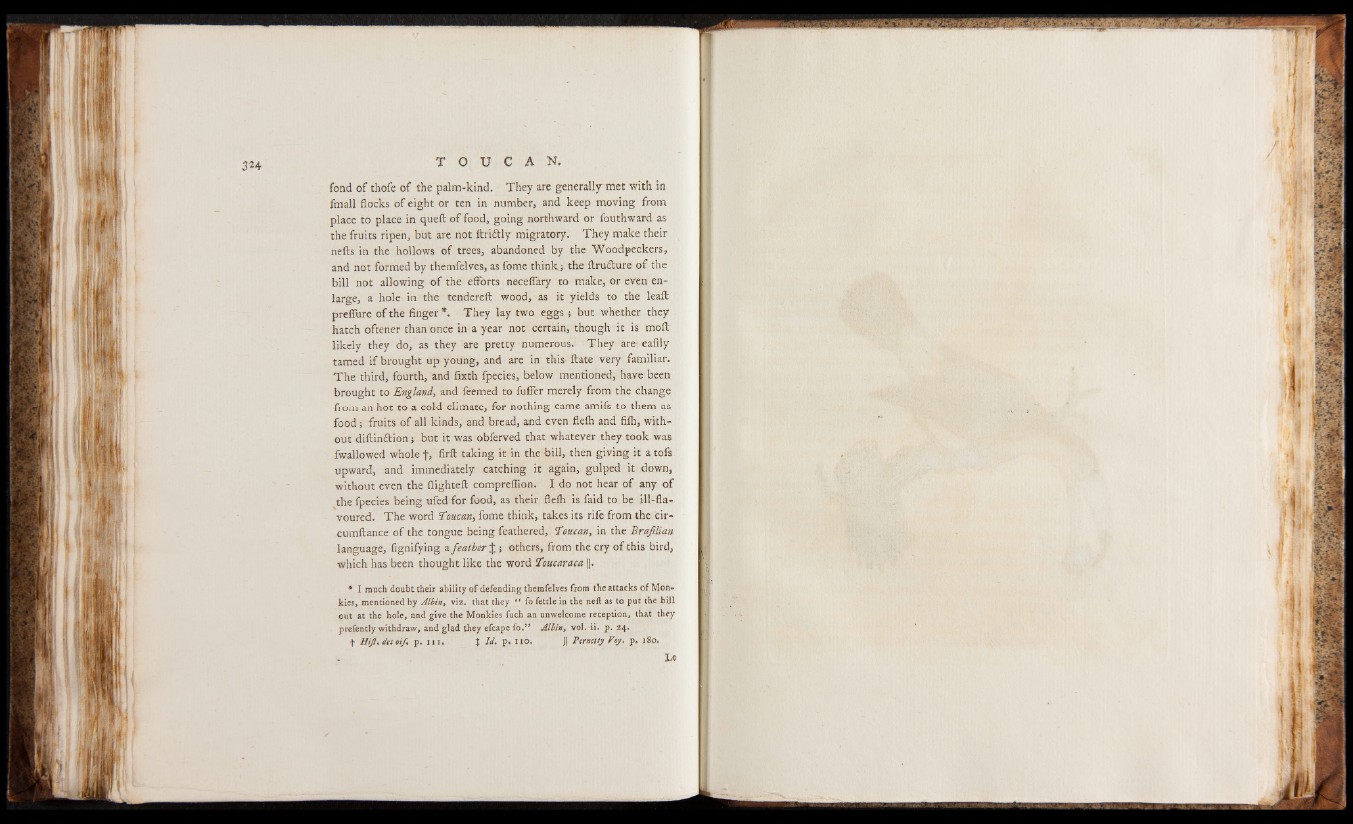
fond of thofe of the palm-kind. They are generally met with in
fmall flocks of eight or ten in number, and keep moving from
place to place in queft of food, going northward or fouthward as
the fruits ripen, but are not ftri&ly migratory. They make their
nefts in the hollows of trees, abandoned by the Woodpeckers,
and not formed by themfelves, as fome think ; the drufture of the
bill not allowing of the efforts necefiary to make, or even enlarge,
a hole in the tendered wood, as it yields to the lead
prefiure of the finger *. They lay two eggs ; but whether they
hatch oftener than once in a year not certain, though it is mod
likely they do, as they are pretty numerous. They are- eafily
tamed if brought up young, and are in this- date very familiar.
The third, fourth, and fixth fpecies, below mentioned, have been
brought to England, and feemed to fuffer merely from the change
from an hot to a cold climate, for nothing came amifs to them as
food; fruits of all kinds, and bread, and even flefh and' fifh, without
didinftion; but it was obferved that whatever they took was
fwallowed whole f , fird taking it in the bill, then giving it a tofs
upward, and immediately catching it again, gulped it down,
without even the flighted compreffion. I do not hear of any of
the fpecies being ufed for food, as their flefh is faid to be ill-flavoured.
The word 'Toucan, fome think, takes its rife from the cir-
cumdance of the tongue being feathered, Toucan, in the Brajilian
language, dignifying a feather J ; others, from the cry of this bird,
which has been thought like the word Toucaraca |.
* I much doubt their ability of defending themfelves from the attacks of Monkies,
mentioned by Allin, viz. that they “ fo fettle in the neft as to put the bill
out at the hole, and give the Monkies fuch an unwelcome reception, that they
prefently withdraw, and glad they efcape fo.’ * Albin, vol. ii. p. 24.
t Hift.dtioif, p. i l l , X Id. p. IIO. II Ptrmtty Toy. p. 180.